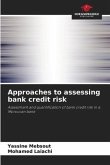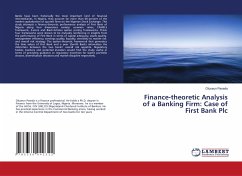Despite the fact that credit risk is proven to be one of the most important determinants of the net interest margin (NIM), it was never proxied by probability of default in the previous papers. The primary goal of this research is to develop a model for PD estimations, and to incorporate this variable into the regression with NIM as a dependent variable. This paper examines the impact of PD on NIM of 35 Austrian banks, covering a fourteen-year period from 1999 to 2013. The statistical analysis suggests that PD can be estimated by using banks' financial statements. The ratios characterizing liquidity, assets, capital and profitability are used as explanatory variables in the regression model. Moreover, our results provide a good evidence that PD has a significant influence on NIM. The slope coefficient is negative when PD is used as the only explanatory variable for NIM, however, the sign is reversed when other bank-specific and macro factors are taken into account. Equity and operational efficiency variables as well as volatility of interest rates are found to be significant. At the same time, GDP growth and Inflation rate are irrelevant for NIM estimation in our research.
Bitte wählen Sie Ihr Anliegen aus.
Rechnungen
Retourenschein anfordern
Bestellstatus
Storno








